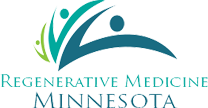Mayo CRM-original iPSC-derived islet product in a retrievable, encapsulation device
Our product is MC-iLETS01, Mayo Center for Regenerative Medicine-original iPSC-derived islet cell product in a retrievable encapsulation device, for diabetes therapy. We will test its long-term safety/functionality in a mouse model of diabetes. The data will be used for our FDA pre-IND and IND applications.
Controllable and automated system for synthesizing GMP magnetic nanoparticles for regenerative medicine applications
Development of inducible immunodeficient swine
Immunodeficient swine have tremendous potential in basic and pre-clinical research; however, difficulties in propagation have impeded commercial availability. As a solution, we propose to build and test a conditional rescue cassette to pair with our RAG2/IL2Rg knockout swine to enable propagation. If successful, this project will lead to the first commercially available immunodeficient pig for regenerative medicine research and development.
Regenerative cardiac synchronization: a translational study
Heart attacks damage heart walls, compromising the pumping function of the heart. Dr. Yamada is investigating the use of patient’s own stem cells as a new therapy to help reestablish and maintain a synchronized pumping motion in the infarcted heart.
Fetoscopic regenerative therapy for severe pulmonary hypoplasia - a feasibility pre-randomized controlled trial study
When a baby’s lungs are not adequately developed at birth, severe complications and even death can result. Dr. Ruano brings expertise in a technique that uses a minimally invasive procedure to intervene while the fetus is still in the uterus. He will participate as one investigator in a larger clinical trial to see if this procedure can regenerate the process of lung growth and development before birth.
Identification of novel regulators of heart regeneration
Dr. van Berlo’s research aims to help children born with heart disease. He is researching the triggers that can increase cardiac muscle after birth, giving children a better chance for a healthy life.
Role of checkpoint kinase in myelin regeneration
Multiple sclerosis and other diseases attack the myelin, a sheath that insulates the nerves. Dr. Jang is investigating the underlying molecular mechanisms of myelin regeneration in an effort to develop a therapy to help patients.
Spinal cord regeneration: translating from salamanders to enhance regenerative repair after injury in mammals
Some salamanders can regenerate a fully functional spinal cord after injury, but humans and other mammals can’t. Dr. Echeverri’s research has identified key molecular differences between salamanders and mammals. She is working to learn more about these differences and how processes in the salamander could be translated to help mammals regenerate spinal tissue.
Generation of second heart field and head muscle progenitors by modeling cardiopharyngeal mesoderm
Some common birth defects affect the muscles of both a child’s face and heart. Dr. Chan is working on a pluripotent stem cell model that produces these muscles to better understand what types of cells could some day help treat these patients.
